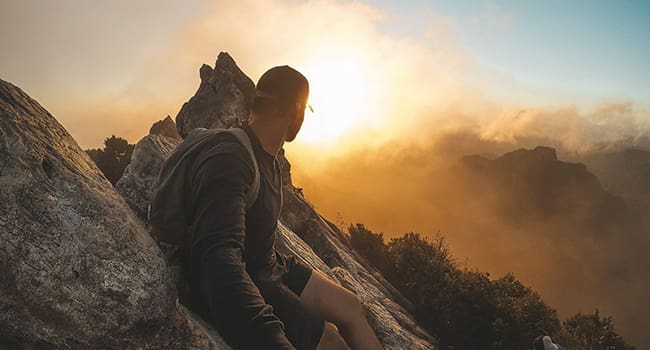 This phrase has become popular in the last several months: “Be brave enough to be bad at something new.”
This phrase has become popular in the last several months: “Be brave enough to be bad at something new.”
As a teacher, it would be easy for me to impose this philosophy on my students. We’re always telling our young people to try new things, be it a sport, school subject or art form. By trying new things, they find what they’re most passionate about and are able to develop their gifts.
We may all fear looking foolish to some degree, but it’s by being willing to do so that one discovers some of the greatest joys of life.
It’s an interesting paradox that in order to take such a risk, one needs to be confident. In other words, being humble doesn’t mean that we think badly of ourselves. It means being so self-assured that we’re willing to acknowledge the need to learn from others. People who lack this confidence are much less willing to admit what they don’t know.
Teaching has certainly taught me what I’m good at and where I need to rely on the skills of others.
Interacting with former students has been a celebration of my teaching skills, specifically my ability to build confidence in others and draw out their gifts.
It has also demonstrated what I’m not so good at. I only need to go to the dentist, to the optometrist, or try to pour concrete to see how much more talented and accomplished my former students are in these areas.
I would even say that celebrating the successes of others has made me a more effective teacher. I can now confidently assure my Grade 8 students that though they may not know exactly what the future holds, they need not fear it.
Despite all my years of teaching, I can’t think of a student who doesn’t gift the world with their presence. I love to point out to the students in my current high school that their basketball coach played for me in elementary school, grew to be an amazing player and now far outshines me in his ability to coach. My current students will also outshine me and in many ways they already do.
The other point of this quote is that in order to keep growing, we need to be open to learning. While we each have our talents, no one is good at everything. Learning new skills isn’t easy, but I can’t imagine teaching the same way I did them in 1985 and still being an effective educator.
More recently, the challenge of teaching remotely due to measures to prevent the spread of COVID-19 hasn’t been easy either. But the skills I’m developing will be of great benefit when we return to normalcy.
In his book Outliers, author Malcolm Gladwell explains the 10,000-hour rule. In order get really good at something, we need to practise the skill for at least 10,000 hours.
Michael Jordan became arguably the greatest basketball player of all time because he spent countless hours honing his skills.
The Beatles became a great band by playing show after show, often for many hours, night after night for years before they became a cultural phenomenon.
Maybe we can even say that it’s good to be bad at things. If we have an awareness of our inherent greatness, we really don’t mind looking foolish. From there, all it takes is time and hard work, combined with some talent and passion.
We may be bad for a while but it won’t last for long.
Gerry Chidiac is an award-winning high school teacher specializing in languages, genocide studies and work with at-risk students.
The views, opinions and positions expressed by columnists and contributors are the author’s alone. They do not inherently or expressly reflect the views, opinions and/or positions of our publication.


